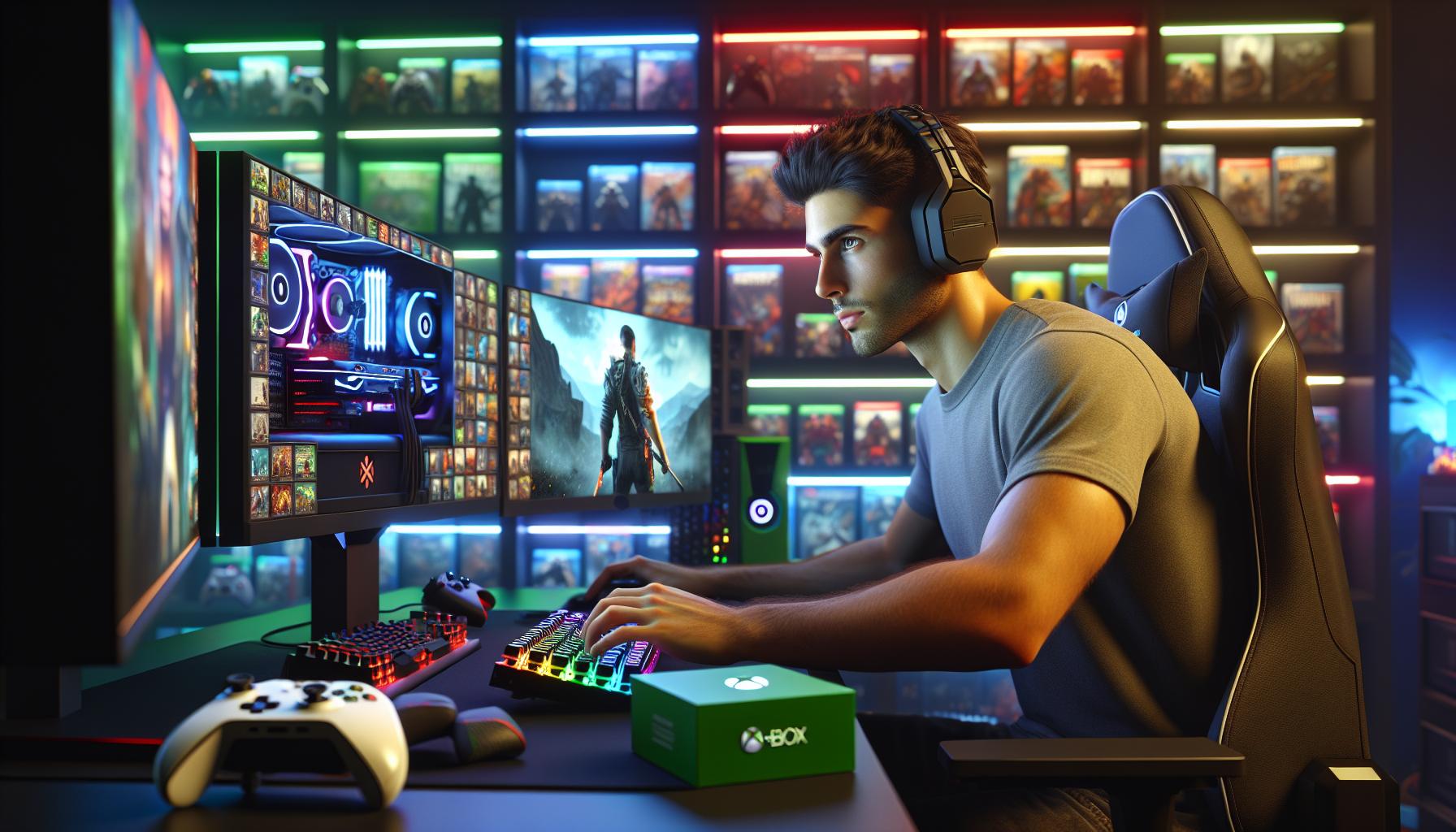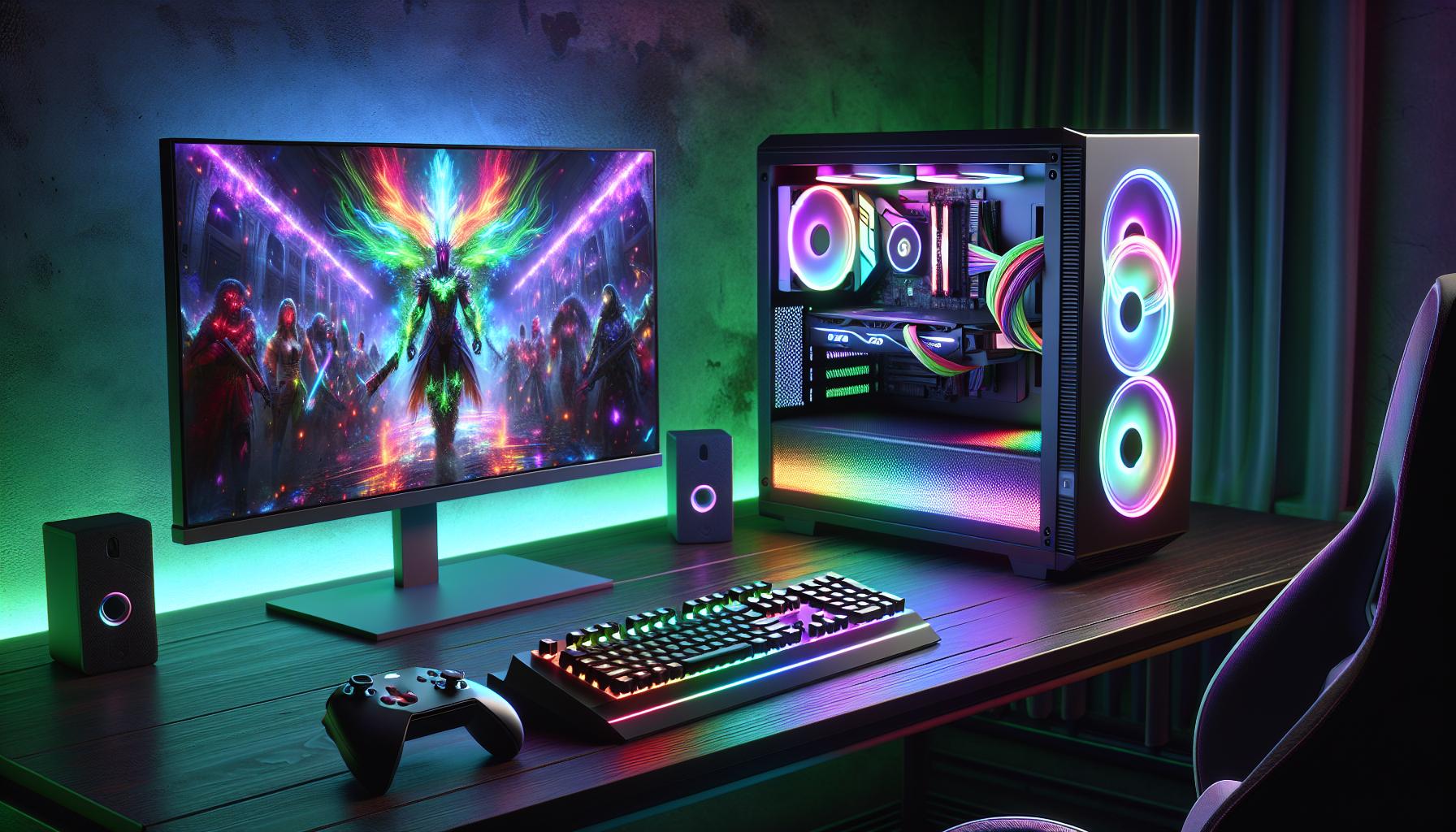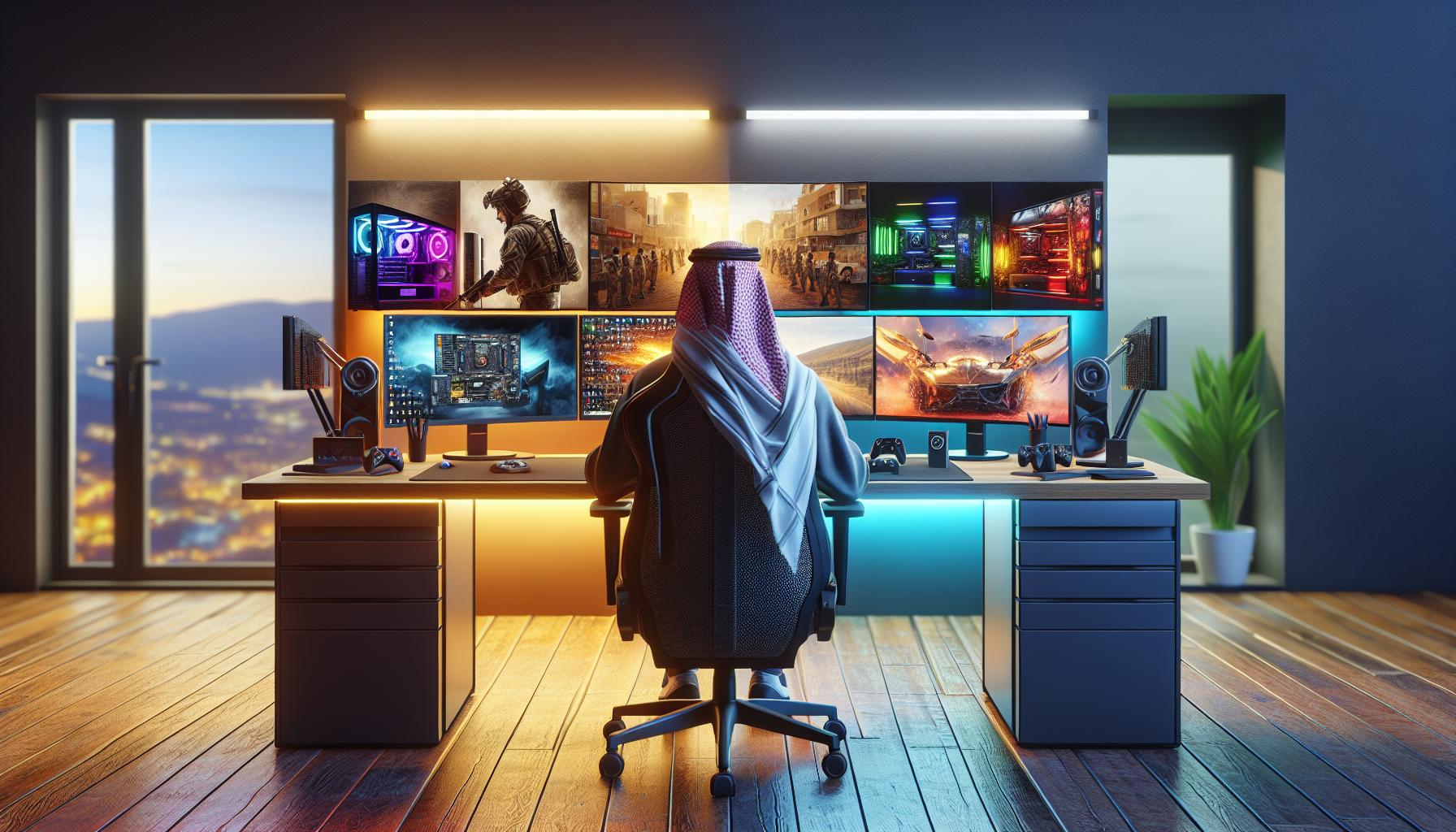Phone:
(701)814-6992
Physical address:
6296 Donnelly Plaza
Ratkeville, Bahamas.

In the epic showdown of gaming, the age-old debate between PCs and consoles rages on like a never-ending boss battle. On one side, the sleek, customizable gaming PC promises unparalleled graphics and performance, while on the other, the trusty console offers simplicity and a library of exclusive titles. It’s like choosing between a gourmet meal prepared by a five-star chef and a delicious pizza delivered to your door—both have their charm, but which one will satisfy your gaming cravings?
Gaming platforms primarily fall into two categories: PCs and consoles. Each platform offers unique experiences shaped by their design and intended use. PCs often boast enhanced graphics capabilities and customizable hardware, catering to gamers seeking superior performance. Graphics cards in high-end gaming PCs support resolutions and frame rates that consoles can’t match.
Consoles, like the PlayStation and Xbox, provide an accessible and straightforward gaming experience. Exclusive titles often draw players to these platforms, as certain games are available only on one system. Ease of setup and use also contributes to the appeal of consoles, allowing gamers to start playing after a simple plug-and-play installation.
Cross-platform compatibility remains an emerging trend. Some games allow play between PCs and consoles, fostering a unified gaming community. Gamers appreciate this development, especially when considering friends or gamers they wish to connect with across different platforms.
Price differences heavily influence platform choice. PCs can require significant initial investment, as gamers often purchase components to achieve desired performance levels. In contrast, consoles typically feature a single purchase price, offering a complete system with a set performance standard.
Ultimately, players prioritize personal preferences when selecting a gaming platform. Factors such as game library, performance, and budget define each player’s decision-making process. Understanding the strengths and weaknesses of both PCs and consoles aids gamers in making informed choices tailored to their needs and gaming desires.

Performance significantly impacts the gaming experience. A gaming PC generally outperforms consoles in various aspects.
Graphics quality is one area where gaming PCs excel. High-end GPUs and CPUs enable PCs to render stunning visuals. Customization options allow for upgrades, ensuring longevity in performance. Consoles, on the other hand, provide fixed hardware performance. They optimize games to run efficiently, but graphical fidelity often falls short compared to a comparable PC.
Frame rates directly influence gameplay smoothness. PCs typically achieve higher frame rates, reaching up to 240 FPS in some cases. This responsiveness enhances competitive gaming experiences. Consoles, while capable of supporting 60 FPS, may struggle to maintain stability during graphically intensive scenes. Resolution benefits also favor gaming PCs, supporting 4K and even 8K gaming while consoles often max out at 4K. Overall, the superior frame rates and resolutions of PCs cater to gamers seeking the best visual dynamics and fluid gameplay.

Cost factors significantly influence gamers’ decisions between PCs and consoles. Initial expenses and ongoing costs shape the overall investment.
Purchasing a gaming PC generally requires a higher initial outlay compared to a console. A mid-range gaming PC often ranges from $700 to $1,200 or more, depending on components and peripherals. In contrast, consoles like the PlayStation or Xbox typically cost between $300 and $500. Building a customized PC may incur additional costs for accessories like gaming chairs, high-refresh-rate monitors, and mechanical keyboards, influencing the overall budget. Consoles come with bundled controllers and often include game titles, providing immediate gaming capability at a lower entry price.
Long-term expenses differ for PCs and consoles, impacting overall affordability. Upgrading hardware components, such as GPUs and CPUs, presents a recurring cost for PC gamers. Periodic upgrades might range from $200 to $800 for performance enhancements. On the other hand, consoles largely retain their performance over time with no required upgrades, but gamers must purchase new titles separately. Subscription services, such as Xbox Game Pass or PlayStation Plus, can add monthly fees for ongoing access to games on consoles. Thus, considering both initial and long-term expenses helps gamers make informed choices based on their preferences and budgets.
Game library diversity greatly influences the choice between gaming PCs and consoles. Each platform boasts unique titles and opportunities, reshaping the gaming experience.
Consoles feature exclusive titles, which can significantly sway a gamer’s decision. PlayStation offers popular series such as “Spider-Man” and “God of War.” Xbox showcases franchises like “Halo” and “Gears of War.” These games often provide experiences that showcase the hardware capabilities of the consoles, leading many gamers to prefer specific platforms. PC gaming also has exclusives, including “Dota 2” and “The Elder Scrolls Online.” However, many titles are either shared or available on both platforms, allowing flexibility for gamers searching for their favorite experiences.
Backward compatibility serves as another crucial factor in game library diversity. Consoles like Xbox Series X support a substantial library of games from previous generations. This feature provides gamers continued access to their beloved titles while upgrading hardware. Gamers often find significant value in this capability, enabling seamless transitions between generations. On the other hand, PCs typically boast broader backward compatibility, as most games run on newer operating systems. Some older games, however, may require specific configurations or emulators. This aspect of backward compatibility caters to those who appreciate classic titles while seeking modern performance enhancements.
Customization and upgradability set gaming PCs and consoles apart significantly. Gaming PCs offer extensive hardware upgrade options, allowing users to enhance performance over time. Upgrading components like GPUs and CPUs enables gamers to achieve higher resolutions and frame rates. Numerous manufacturers provide parts, making it easy to tailor systems to personal preferences and requirements. With performance benchmarks often showing gaming PCs reaching up to 240 FPS, the ability to upgrade ensures that they adapt to evolving gaming technologies.
Limited customization defines the console experience. Consoles come with fixed hardware, meaning users can’t upgrade individual components like graphics cards or processors. The gaming experience remains stable, but performance can become outdated as technology advances. Exclusive features like online services or user interfaces are fixed, providing minimal variation. Gamers looking for enhanced performance or graphics must purchase the next console generation. This standardization simplifies the gaming experience but restricts personal expression through hardware modifications.
User experience varies significantly between gaming PCs and consoles. Accessibility factors also play a crucial role in gamers’ platform choice.
Consoles excel in simplicity. With straightforward interfaces, gamers can navigate menus and launch games quickly without technical expertise. Plug-and-play functionality allows immediate access to gaming, attracting new users. Gaming PCs, however, demand some technical knowledge for setup and optimization. Users configure hardware, install drivers, and manage software updates. While this approach offers customization, it can deter novices. Convenience often tips the scales in favor of consoles for those seeking hassle-free fun.
Online services differ markedly between the two platforms. Consoles generally offer streamlined online features, including subscription services that provide free games and multiplayer access. PlayStation Plus and Xbox Game Pass stand out for their robust gaming libraries and added benefits. In contrast, gaming PCs boast platforms like Steam and Epic Games Store with diverse games and active modding communities. Players often enjoy frequent sales and free-to-play titles, enhancing their online experience. While both models offer online communities, PCs tend to present more variety in software options and game customizations, appealing to dedicated gamers.
Choosing between a gaming PC and a console ultimately hinges on individual preferences and priorities. Each platform offers unique advantages tailored to different gaming styles. For those who value high performance and customization a gaming PC stands out. Conversely gamers seeking simplicity and exclusive titles may find consoles more appealing.
Price considerations also play a pivotal role in the decision-making process. While gaming PCs require a higher upfront investment they can offer a longer lifespan through upgrades. Consoles typically present a lower initial cost but may incur ongoing expenses for games and subscriptions.
As gaming technology continues to evolve cross-platform compatibility is becoming increasingly important. This trend allows gamers to connect and play with friends regardless of their chosen platform. Ultimately the best choice lies in aligning personal gaming preferences with budget and desired experiences.